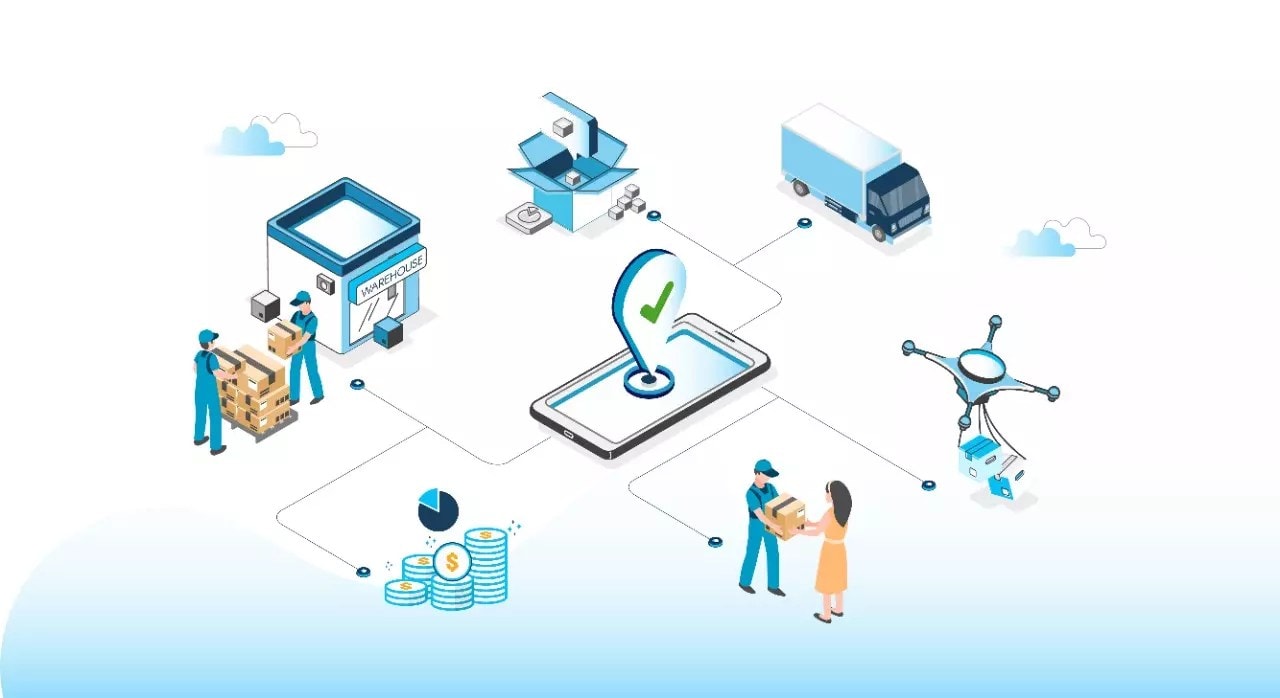All about DMS (DISTRIBUTION MANAGEMENT SYSTEM)
The distribution management system has long been a commercial test.
Few goods can arrive too quick and at speed and prove to be bad if used before time.
Or, over products can reach too late, letting a supplier seize the major portion of the marketplace share.
Real delivery is so vital that sub-discipline does become an integral part of supply chain and inventory management, such as just in time list. Overall, fruitful distribution includes many touching parts and approaches needful a strong delivery organization strategy fuelled by real-time info.

What is DMS, and what are its benefits?
The distribution management system is the procedure used to supervise the drive of goods from dealer to the manufacturer to trader or retailer and lastly to the end consumer. Many activities and procedures are included as well, counting raw goods from vendor organization, wrapping, warehousing, inventory, source chain, logistics and sometimes even blockchain.
Besides bringing higher incomes, distribution management removes waste in several ways, reaching from abridged spoilage to reduced warehousing costs since products and goods can be transported as needed (“just in time” inventory), rather than kept in bigger bulk (“just in case” inventory).
The distribution Management system leads to reduced shipping charges and faster delivery to customers. It also makes things relaxed for buyers, allowing “one-stop shopping” and other conveniences and rewards, such as customer constancy rewards programs.
Distribution trials can occur from a diversity of disruptions. Natural troubles include severe weather events, raw physical shortages (bad crop years), pest compensations, and epidemics or pandemics. Human disturbances include riots and other mishaps.
Transportation disruptions include transport vehicle disrepair, conservation downtimes and chances, late flights and restrictive or new transport rules such as those regularly seen in trucking.
Selecting the right supply management system for your group depends a countless deal on your organization’s distribution goals and tests and the distribution models and channels your business uses. But as a general rule, businesses should assess:
- The comfort of integration and compatibility with inheritance systems.
- Scalability and resistance
- Security
- Data group and analytics, counting real-time data flow and ecosystem data-sharing
- Flexibility, whether the scheme is alert enough to accommodate the fast variations wanted to overcome problems or seize new chances.
There were historically 3 important channels as mentioned below:
- Wholesaler. Goods are given to from manufacturers to wholesalers in this station. For example, liquor distillers allocate their stuffs of liquors to wholesalers.
- Retailer. Goods are ordered from builders or wholesalers to retailers. For example, big-name clothing and fittings are given to higher-end retailing chains such as Neiman Marcus, Nordstrom and Macy’s.
- Distributor. This channel moves goods from the direct source or manufacturer to an official distributor.
Conclusion:
Distribution management systems are essential for proper growth and transactions in society. It controls the downstream supply chain. It helps to manage the vast networks of big and small distributors and hence makes things easier. Above are all the information about DMS and why is it necessary for industries.

Hello! My name is Lucas, and I am the creator of ursuperb.com. I’ve been writing about technology for almost 10 years now, and I love talking about tech news, reviews, and tutorials. I’m currently living in San Francisco, CA, and I’ve been blogging professionally since 2012. I love what I do, and I really enjoy interacting with people online. I believe in creating positive change for humanity, and I try to inspire others to do the same. You can read more about me here.
My favorite thing about Ursuperb is that I’m able to provide useful information to anyone interested in learning more about technology. No matter what kind of tech you use (computer, smartphone, tablet), you will definitely find something interesting to read on Ursuperb. So, let’s take a look at some of the topics I cover on Ursuperb:
1) How To Build An Online Business With WordPress
2) How To Make Money On YouTube Using AdSense
3) What Is Google Analytics? And Why Should You Use It?
4) How To Make Your Own Website Design Software For Free
